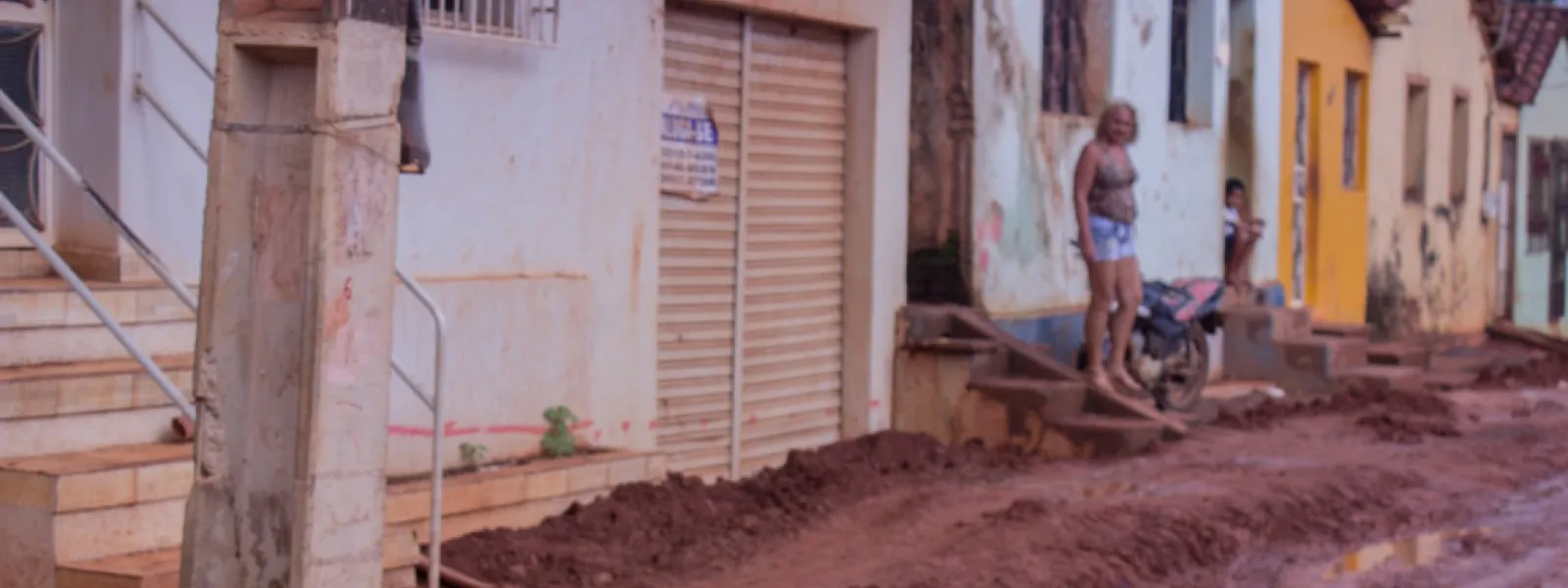
Project
Photo: Maíra Irigaray / Amazon WatchHolding Brazil accountable for the Belo Monte Dam
When fully operational, Belo Monte will be the third-largest dam in the world, constructed in one of the most important ecosystems on the planet: the Amazon rainforest. It sits on the Xingu River in Pará, a state in northern Brazil. The reservoir will cover 500 square kilometers of forest and farmland—an area the size of Chicago.
For the people of the Xingu, construction of Belo Monte has meant loss of access to water, food, housing, work and transportation. At least 20,000 people have been displaced.
The government and construction consortium began to construct the dam without first consulting the people of the region, many of whom are indigenous. They flouted international human rights law, which requires the free, prior and informed consent of affected indigenous communities. Brazil also failed to comply with precautionary measures issued by the Inter-American Human Rights Commission, which were intended to protect the life, health, and integrity of local communities.
Though Belo Monte began operations in May 2016, it is not yet operating at full capacity. In April 2016, a federal court suspended the dam's operating license because the consortium in charge did not complete basic sanitation works in Altamira, the city nearest to and most affected by the dam.
Partners:
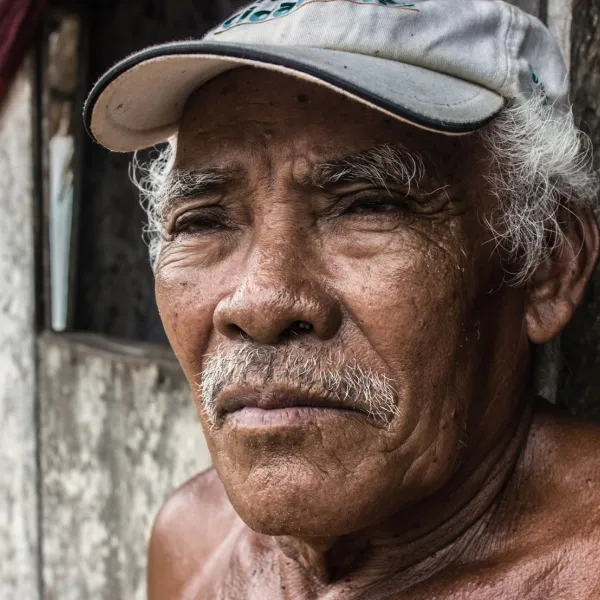
Related projects
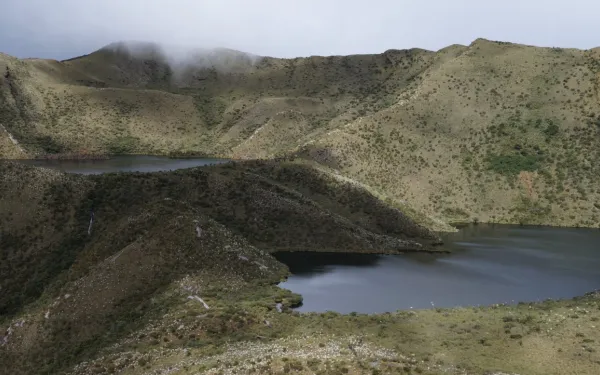
Forest fires: How can we help prevent them?
The recent huge fire in the Valparaíso region of Chile has been described as the country's biggest disaster since the 2010 earthquake. But this year, as in previous years, forest fires and their deadly consequences are not an isolated phenomenon in Latin America. In Colombia, the fires forced the government to declare a national disaster and prompted civil society to call for comprehensive protection of Colombia's forests and páramos. Fire also reached part of Argentina's Patagonia region. Ninety percent of forest fires are caused by humans, particularly through activities such as logging and slash-and-burn agriculture. The climate crisis is contributing to their greater intensity and frequency, increasing the risks to forests, species and communities. In addition, wildfires affect air quality and thus human health If this situation is the result of our actions, it is also in our hands to prevent it. What can we do to prevent fires? Here are some actions that different actors in society can take to contribute to this important task. What can governments do? Design and implement laws to ensure forest security and ensure compliance with existing laws. Develop education campaigns to raise public awareness of the importance of forests and how to care for them. Strengthen fire prevention and suppression infrastructure, including spray planes, containment barriers, and technology to constantly monitor the health of forests. What can businesses do? Reduce emissions of gases that heat the atmosphere and increase the risk of wildfires by switching to cleaner energy sources. If flammable waste is generated, implement policies to dispose of it responsibly. Train their work teams to respond to these types of disasters. Promote best practices that help protect the environment. What can citizens do? Organize garbage collection groups and avoid making campfires and/or practicing livestock and agricultural activities in the forest. Obtain and disseminate quality information about the importance of these ecosystems for life on the planet. Follow safety instructions, such as wearing masks and/or evacuating smoke-contaminated areas. Be vigilant and make sure we know how to report fires and what action plans are in place to protect our nearby forests. It is essential that governments, businesses and citizens work as a team to protect forests and promote a culture that cares for the environment and all life.
Read more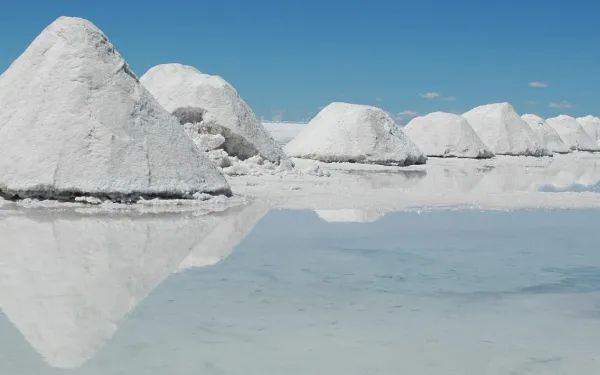
Lithium unveiled: Origins, extraction and environmental implications
One of the paradoxes of the energy transition is that it replaces the use of fossil fuels with mineral resources whose extraction and refining can have negative impacts on ecosystems, species and communities. This is happening with lithium, a mineral that has traditionally been used in glass and ceramics to provide greater adhesion and hardness, but is now being used primarily to make the batteries required by technologies that eliminate or reduce the use of fossil fuels. This has led to an increase in its demand. The serious social and environmental impacts of its extraction have been hidden or minimized. What makes lithium special? Lithium is a mineral in high demand due to its unique properties: It is the lightest metal with the highest electrochemical potential. It has a high energy storage capacity. It is malleable, so it can be adapted to different sizes, shapes and designs. These qualities make it a key material in the manufacture of batteries for cell phones, computers and, most importantly, electric vehicles. Lithium is considered key to the energy transition because it can be used to store non-conventional renewable energy, such as wind and photovoltaic power. Where it is: The so-called "lithium triangle"? The primary sources of lithium are salt flats, which are wetlands covered with a saline crust that contain brines, bodies of water in which many salts and elements, including lithium, are dissolved. Salt flats are attractive to the mining industry because of the relative technical ease of exploitation, low operating costs and low energy requirements to extract lithium from them compared to other sources. Worldwide, the salt flats of Argentina, Bolivia and Chile account for 54 percent of lithium resources (potentially mineable material). In addition, Argentina and Chile hold 46 percent of the world's lithium reserves (the portion of known resources with a high level of confidence and proven economic viability). The mining industry has dubbed the region where the mineral is concentrated the "Lithium Triangle" - because that is all they see there - which includes northeastern Argentina, northern Chile and southern Bolivia. But there is much more than lithium in this region. There are also communities, ecosystems and species that depend on these salt flats. The region's inhabitants are engaged in small-scale ranching and subsistence agriculture, activities that require water, an already scarce resource in these latitudes. How is lithium mined from the salt flats? The procedure is as follows: The salt flat is drilled. The brine is poured into large pools or basins. Wait for the water to evaporate so that the lithium concentration increases. When the concentration is sufficient, the brine is sent to an industrial plant. The brine is chemically treated to produce lithium carbonate, which is marketed for battery production. Lithium extraction, especially by this method, involves huge consumption and loss of water because: Water is lost in pumping brine. Evaporation in ponds requires two million liters of water for every ton of lithium produced. Water is also needed in the final processes to obtain lithium carbonate and separate it from the rest of the compound. Lithium mining is threatening South America's salt flats, which are Andean wetlands, affecting local water availability and threatening the survival of communities and species living around these fragile ecosystems. The energy transition is urgent, but it must be equitable and not at the expense of other natural resource extraction that endangers people and the environment. sources -Maritza Tapia, “Claves del litio: el metal más liviano y con mayor potencial electroquímico”, Universidad de Chile. -Heinrich Böll Stiftung Colombia, “Litio: los costos sociales y ambientales de la transición energética global”. -Florencia Ballarino, “¿Qué es el litio, para qué sirve y de dónde se extrae en la Argentina?”, Chequeado. -Wetlands International, “El impacto de la minería de litio en los Humedales Altoandinos”. -Rodolfo Chisleanchi, “‘Triángulo de litio’: la amenaza a los salares de Bolivia, Chile y Argentina”, Mongabay Latam. -U.S. Geological Survey, Mineral Commodity Summaries, January 2023, “Lithium”.
Read more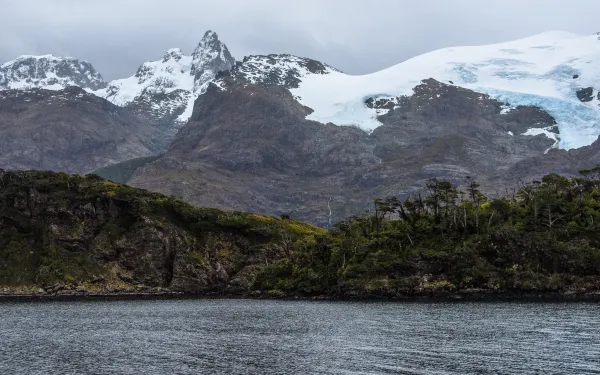
5 years of the Kawésqar National Reserve: pending issues for its protection
Local communities denounce that the area is highly affected by salmon farming, which is failing to comply with environmental regulations.On January 30, 2019, the Official Gazette published the decree creating the Kawésqar National Reserve in Magallanes, which extends over 2,842 hectares between fjords and Patagonian peninsulas. The purpose of this classification was to guarantee the protection of the area, its territory and biodiversity, as well as to establish that it is the duty of the State to ensure its conservation. This year, 2024, marks the fifth anniversary of this milestone, which begs the question: is the reserve's objective being achieved? The community's claimsWith the qualification of National Reserve, this area was separated from the Kawéskar National Park, which offers broader protection. In the opinion of the local communities, this administrative division determines in a whimsical way what to prioritize and separates the land from the sea, as if they were independent elements, which causes "divisions and confusion to grow at all levels," says Eric Huaiquil Caro, a member of the Kawésqar Communities Kawésqar Family Groups Nomads of the Sea. He also says that the "agreements that were made in the indigenous consultation have not been responded to." Finally, Caro asks that the conservation of this reserve be done "without salmon farms and we hope that this will be established in the Management Plan that will be submitted for consultation in March 2024." An overstressed areaWithin the Kawésqar National Reserve lie the richest kelp forests in the country, an ecosystem considered key to combating climate change, as they can absorb high levels of carbon dioxide and regenerate marine systems. Although the State must guarantee their protection, the area is experiencing great pressure from the salmon farming industry. For example, there are 133 approved concessions in the entire Magallanes Region and 85 in process, of which 68 approved and 57 in process are in the Kawésqar National Reserve, "which seems unusual to us because it has been proven that the salmon farming industry is neither sustainable nor compatible with the ecosystemic care of the reserve. This is fundamental to the creation of the Reserve's Management Plan, which is currently being designed and which should establish the incompatibility of the industry within the zone's protection mandate, as documented in the report we have prepared together with the communities," says Cristina Lux, an attorney with the Interamerican Association for Environmental Defense (AIDA)."Forty-three percent of the concessions approved within the Kawésqar National Reserve have presented anaerobic conditions within the framework of their operations, according to information obtained from the Environmental Reports for Aquaculture. This means that they suffer or have suffered total or partial loss of oxygen, which affects the living conditions of all of the area's biodiversity," adds Estefanía González, Campaigns subdirector at Greenpeace Chile.The impact, explains Sofía Barrera , an attorney for FIMA, is "enormous and highly destructive.""To begin with, these farming centers are concentrated in just seven sectors (Staines Peninsula, Taraba Sound, Poca Esperanza Strait and Vlados Channel, Glacier Sound, Skyring Sound, Desolation Island and Xaltegua Gulf), which also concentrates their synergistic effects. Some of these are the impact of boat routes, the killing of sea lions to prevent them from attacking the salmon cages, the overproduction of salmon, the presence of garbage outside the concession polygons and the detection of the ISA virus in the farming centers, which ends up making the rest of the marine ecosystem sick, something that has been recognized by Environmental Courts," adds Barrera. "In addition, the dispersion of organic matter from the cultivation centers causes eutrophication and harmful algal bloom events (HAB), generating significant changes in water quality and affecting marine life," adds González.In the opinion of the representatives of these three organizations, despite the legal prohibitions and environmental requirements, the fact that many of these projects have been submitted and approved through environmental impact statements raises legal and political questions. "Why are the authorities not ensuring the real care of this area, whose interests are being taken care of, and how is the salmon industry influencing our authorities," asks Barrera.Unfortunately, González adds, when explanations have been requested, "we have not received answers or certainty. That is why it is urgent to advance towards a management plan that really protects this ecosystem and does not allow more centers that put biodiversity at risk." Press contactVíctor Quintanilla (AIDA), [email protected], +521 5570522107
Read more